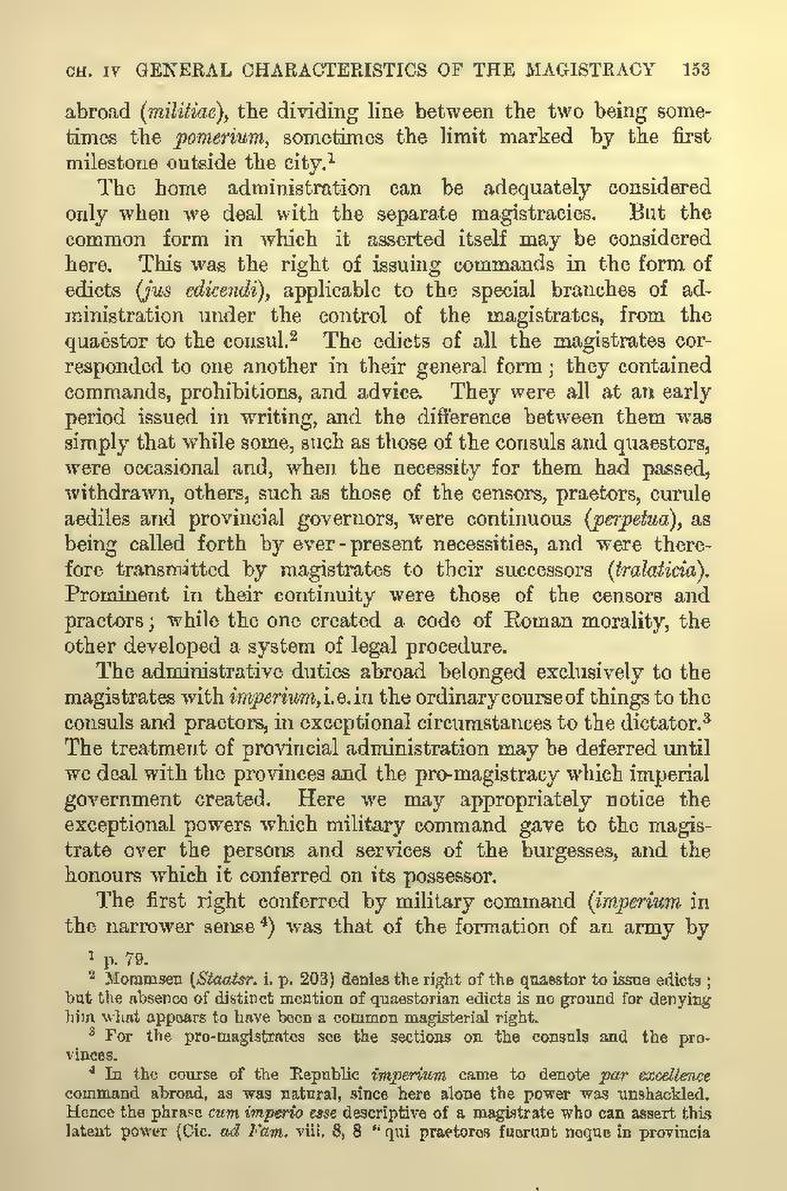abroad (militiae), the dividing line between the two being sometimes the pomerium, sometimes the limit marked by the first milestone outside the city.[1]
The home administration can be adequately considered only when we deal with the separate magistracies. But the common form in which it asserted itself may be considered here. This was the right of issuing commands in the form of edicts (jus edicendi), applicable to the special branches of administration under the control of the magistrates, from the quaestor to the consul.[2] The edicts of all the magistrates corresponded to one another in their general form; they contained commands, prohibitions, and advice. They were all at an early period issued in writing, and the difference between them was simply that while some, such as those of the consuls and quaestors, were occasional and, when the necessity for them had passed, withdrawn, others, such as those of the censors, praetors, curule aediles and provincial governors, were continuous (perpetua), as being called forth by ever-present necessities, and were therefore transmitted by magistrates to their successors (tralaticia). Prominent in their continuity were those of the censors and praetors; while the one created a code of Roman morality, the other developed a system of legal procedure.
The administrative duties abroad belonged exclusively to the magistrates with imperium, i.e. in the ordinary course of things to the consuls and praetors, in exceptional circumstances to the dictator.[3] The treatment of provincial administration may be deferred until we deal with the provinces and the pro-magistracy which imperial government created. Here we may appropriately notice the exceptional powers which military command gave to the magistrate over the persons and services of the burgesses, and the honours which it conferred on its possessor.
The first right conferred by military command (imperium in the narrower sense[4]) was that of the formation of an army by*
- ↑ p. 79.
- ↑ Mommsen (Staatsr. i. p. 203) denies the right of the quaestor to issue edicts; but the absence of distinct mention of quaestorian edicts is no ground for denying him what appears to have been a common magisterial right.
- ↑ For the pro-magistrates see the sections on the consuls and the provinces.
- ↑ In the course of the Republic imperium came to denote par excellence command abroad, as was natural, since here alone the power was unshackled. Hence the phrase cum imperio esse descriptive of a magistrate who can assert this latent power (Cic. ad Fam. viii. 8, 8 "qui praetores fuerunt neque in provincia
